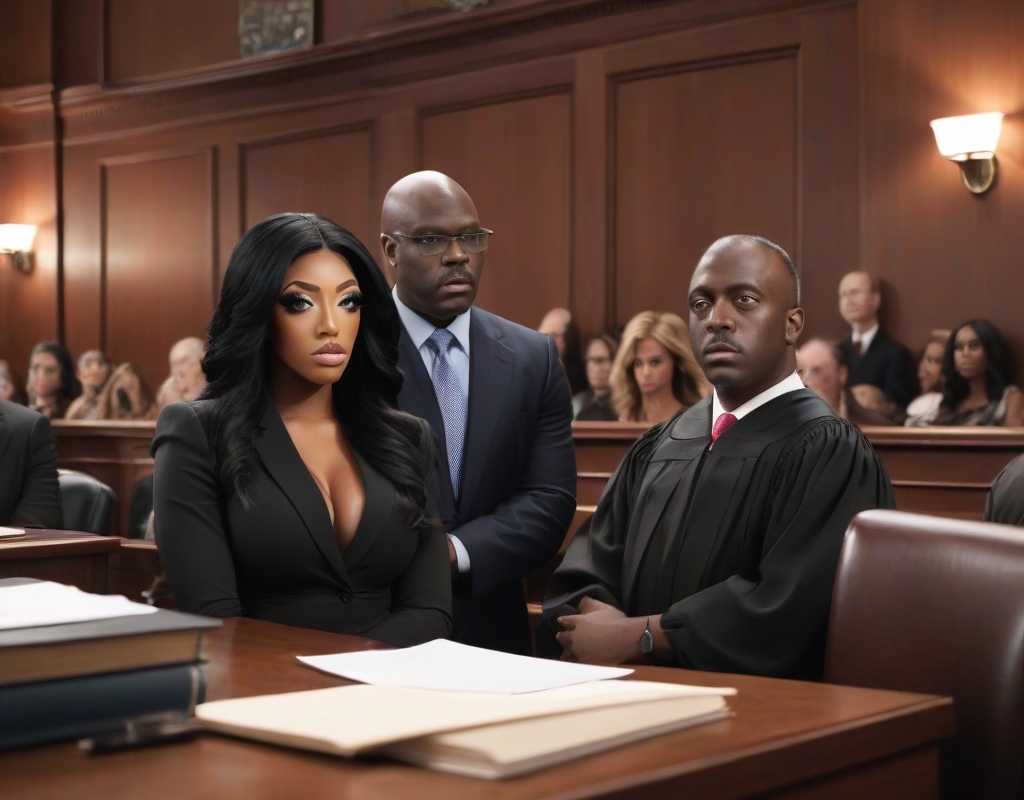The legal struggles between Porsha Williams, a well-known former member of “The Real Housewives of Atlanta,” and her ex-husband Simon Guobadia have escalated significantly. Simon has initiated a lawsuit against Porsha, accusing her of defamation for allegedly suggesting he suffers from erectile dysfunction. This public accusation forms the basis of a lawsuit that has drawn considerable attention, encircled by the sensational details of their divorce.
Central to the dispute is Simon’s insistence that Porsha’s assertions about his health are not only untrue but were also deliberately intended to malign him. He argues that these remarks were made without any factual basis and aimed at inflicting personal and public embarrassment. While Simon emphasizes the baselessness of the erectile dysfunction claims, noting he has never been diagnosed or treated for this condition, his lawyers argue that Porsha’s comments were a targeted attempt to damage his reputation.
The backdrop of this legal battle is set against a swiftly developed and then deteriorated marriage. The relationship journey between Porsha and Simon involved close public scrutiny, filled with accusations and confrontations that unfolded both offline and online. The pivotal moment that led to the current legal stance was when Porsha allegedly disseminated these sensitive health claims, a move that pushed Simon to the courts.
The intricacies of the case have shed light on the substantial legal ramifications of defamation, highlighting Simon’s vigorous quest to claim damages for reputational and emotional distress. He seeks legal redress that would not only compensate him financially but also serve to rehabilitate his public persona.
More broadly, the case has caused ripples beyond the individuals directly involved. It underscores the predicaments that stem from the intertwining of personal grievances with public disclosures, especially for public figures. The ongoing litigation not only stresses the direct impacts on Porsha and Simon’s lives but also exposes the thin line between public discourse and personal privacy.
Media interest in this lawsuit has surged, mainly due to the sensational nature of the allegations and the fame of the involved parties. Coverage spans across various platforms, from news outlets to social media, where fans and followers of “The Real Housewives of Atlanta” are actively discussing the developments. Such a dynamic has turned public opinion into a battleground of mixed views regarding the authenticity of the claims and the motives behind them.
As quoted by celebrity lawyer Lisa Bloom, the potential harm from high-profile defamation cases extends beyond immediate legal consequences to deeper impacts on private lives and mental health. This statement from Bloom taps into the serious implications of defamation not just for public figures but in broader societal contexts.
Legal experts, such as defamation attorney David Gray, provide a clearer view of the hurdles within such lawsuits. Gray outlines that success in defamation litigation hinges not just on proving the falsity of the accusations but also demonstrating that they were made with malicious intent or a reckless disregard for the truth—criteria that complicate Simon’s pursuit of justice.
This lawsuit also raises pivotal questions about the legal dynamics of public disputes, especially in an age dominated by digital communication. It challenges the boundaries of free speech and responsibilities of those in the public eye, blending issues of personal vendetta with public spectacle.
As the legal proceedings evolve, uncertainty looms over the final outcomes and their implications for both Porsha and Simon. It could go the way of a private settlement or possibly a full trial, each path likely unfolding under intense public scrutiny. This case marks yet another chapter of their publicized personal saga with potential lasting effects on how public figures manage personal conflicts legally.
Ultimately, the defamation lawsuit Simon Guobadia has filed against Porsha Williams brings to light broader themes of celebrity, legal accountability, and media interaction. It stands as a vivid example of how personal affairs can escalate into public and legal arenas, fostering debates about the limits of public disclosures and the protections against defamation. As this story develops, it will continue to serve as a complex illustration of the interplay between celebrity culture and the legal system.




